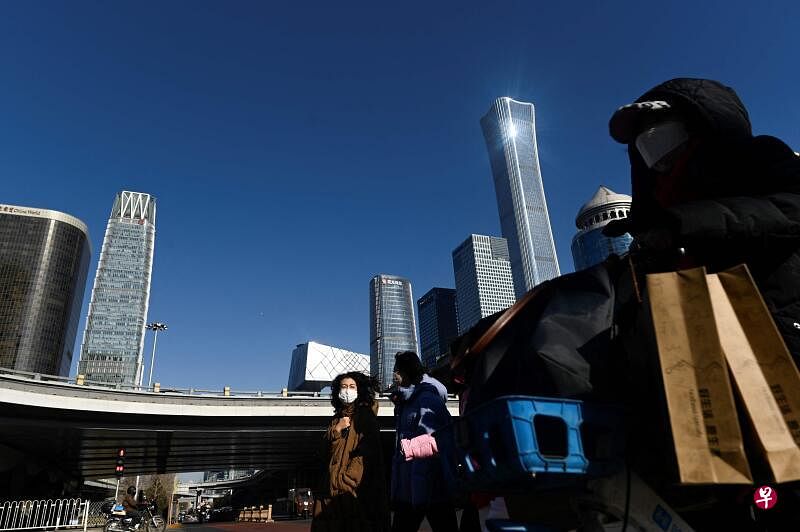
Han Heyuan
Many social problems that some Chinese people have occurred in the past few years, such as housing prices, education and medical costs, are all attributed to privateization.For the above situation, we must admit that housing, medical care, and education are more like three mountains, making people breathless.But at the same time, it is also necessary to point out that the reason for this situation will be simply attributed to privateization, which is obviously biased.The author even believes that the reason is the opposite, which causes the root cause of this situation today is that privateization is not enough.
Taking houses as an example, some people will say that real estate cannot be denied that real estate is currently the most privatized industry in China?60%to 70%on the rich list of the rich people in previous years weren't they all owners of this industry?Yes, the real estate industry is the industry with the highest degree of privatization and the most intense competition.
But it should be deepened to see the essence through the appearance.This seemingly competitive market is behind the high monopoly of land.We know that houses cannot be established in the air and must be based on the property of the land -the real estate of the house, which determines that the Chinese cannot be dissatisfied with the domestic goods as they choose cars and televisions.On specific land.This attribute determines the so -called house supply, which is actually the supply of land.
But the government fully controls the first -level market through land nationalization and state -owned land rental system.It is this element monopoly that the real estate market is a very incomplete market at all.According to the market morphology theory of Walter Eucken, a professor at the University of Fresember, the University of Fresember, which is a typical supply monopoly -first -level land monopolists firmly control the supply of land and take out several plots from time to time to launch it.In the situation where the contradiction between supply and demand is such a tense situation, we always observe the "market competition" of hungry people for food. In fact, this competition is just an illusion of land monopoly.
This is the most confusing place in the Chinese economy: From the perspective of the terminal, the Chinese economy does meet the elements of "free competition market order", but if the connection between the economic processes will be explored, it isAnother truth: The demand for consumer goods is not only affecting the deep processing industry, but also to a certain extent to a certain extent the demand for the basic raw materials industry and all other production factors.
As mentioned earlier, in the real estate industry, key elemental land has been completely monopolized by the government, and the same situation also appears in all walks of life, because the funds, energy, and land in the production factor market are all controlled by the government or the government.State -owned enterprises are highly monopolized.In this way, even if it is the earliest corporate and even individual households, it must indirectly obey the government's plan and will.Because the production and operations of enterprises cannot be separated from these elements, in the case of "unprecedented shops", if you want to obtain these elements, you must obey state -owned enterprises that monopolize these elements, such as petrochemical enterprises, power companies, railway transportationEnterprise and banks.The business behavior of state -owned enterprises is directly charged with their planning center, the government.
It is not difficult to discover that the actual operation of the Chinese economy is almost the policy proposition of German politician and industrialist Walther Rathenau -the country centrally controls the basic industries such as coal, iron, and electricity, and allowsIndividual economies of deep processing and other industries of machinery manufacturing, textiles and other industries independently and freely.Ouken defines this economic policy as a policy of partial centralized management of the economic process.
In other words, China's decades of reforms have only evolved from the economic order from the planned economy, that is, the "complete centralized management economy" described by Oki, which has evolvedThere is a great distance from the "exchange economic order" that is easy and easy to compete.
It is even more vigilant that the current reform of mixed ownership in China has a trend of further strengthening and deepening this order.The so -called mixed economy, popular understanding is that private capital can participate in public ownership enterprises such as state -owned or collectives; similarly, public ownership enterprises such as state -owned or collectives can also participate in controlling shareholders.On the surface, this is conducive to the economy, especially the private economy, but the facts may be the opposite.
Why?The reason is also very simple, because in terms of reality, companies that are truly wealth are rough and truly government -supported. They are often public -owned enterprises such as state -owned or collective systems. Can private capital control the stocks of PetroChina and China Telecom?However, state -owned enterprises, especially state -owned enterprises, can easily control any private enterprise through the capital market.According to the principles of company governance, as the controlling subsidiary, it is responsible and obliged in operation to accept the guidance and control of the parent company.This means that the business behavior of those who have been mixed will eventually be controlled by its parent company's plan center, the government.
Of course, it is possible to return to the planned economy, that is, to return to the "complete centralized management economy", but to regress the order towards a more "centralized management economy", it is really worthy of being vigilant.
The author is a Chinese economist and a financial columnist
From the perspective of the terminal, China's economy does meet the elements of "free competition market order", but if the connection between the economic processes is explored, it is another truth: all kinds of key elements are all being quiltGovernment or government -controlled state -owned enterprises are highly monopolized.


